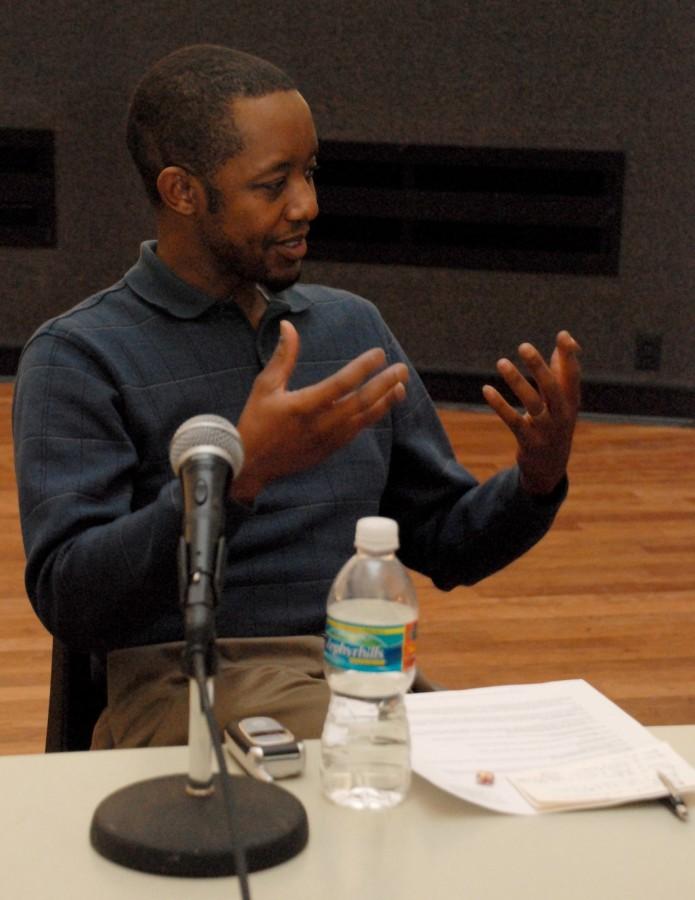For weeks, the world has been energized by discussions of what could result from recent revolutionary changes in Egypt. On Feb. 9, just days before Hosni Mubarak resigned as Egypt’s president, those discussions continued on Guilford’s campus with “Revolution in North Africa and the Arab World,” a community-run panel.
“What happens in one part of the world affects us in very real ways,” said Diya Abdo, assistant professor of English in an e-mail interview. “The new leadership of Egypt, for example, could change the landscape of the political situation as it involves the U.S. and Israel, and that will reflect in one way or another on the American people as taxpayers.”
In addition to providing a basic breakdown of recent developments in Egypt and Tunisia, the panel brought forward speculation on what could happen next with this series of revolutionary protests. The panel reflected on what a revolution in Egypt could mean for surrounding Arab nations and how that could affect U.S. foreign policy, keeping in mind that Mubarak helped the U.S. in maintaining relationships with the Arab world.
“I love being able to share my experience,” said first-year Lucas Miller, a student speaker. “I think people need to be aware of what’s going on.”
Miller recently returned from living in Egypt. Although he did not experience the protests firsthand, he spoke of the unrest he witnessed during his stay. Miller briefly lost contact with his parents when Egypt disabled internet and cell phone access on Jan. 27. His parents have since been evacuated to the U.S.
“Right in the Guilford College community, we have students that are being immediately impacted,” said Max Carter, campus ministry coordinator and director of the Friends Center. “Students should be motivated to be informed just out of concern for their fellow community members. These are events that are going to shape the world we live in over the next 40 to 60 years.”
During the panel, Carter spoke against violence, promoting the idea that peace was necessary for a revolution. He referenced the work of Quaker Allen Jay, who brought compromise among the Quakers in the U.S. during the Methodist revival.
According to Carter, Jay used peaceful reasoning to settle disputes between entrenched leadership and youth — a compromise that he hoped to see between the Egyptian government and its people.
Part-Time Lecturer in Religious Studies Andrew Mbuvi also cited the recent past, recalling examples of political figures being overthrown in Kenya. According to Mbuvi, Kenya is still home to violence for political reasons despite false expectations of a revolution.
“Even if Mubarak goes, what then?” said Mbuvi to attendees.
Assistant Professor of Political Science Robert Duncan also spoke at the event about the importance of foreign policy and how democratic nations evolve. Assistant Professor of Religious Studies Eric Mortensen, who helped organize the event, led the question-and-answer session at the end of the discussion.
Throughout the event, the theme of global perspective was very prevalent.
“It is the young people that can bring revolution to an entire country,” said Mbuvi. “And it is young people that need to learn about the revolutions going on. Unfortunately, the typical American is ill-informed.”

